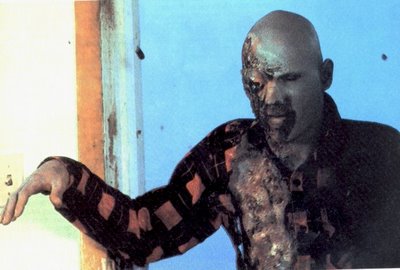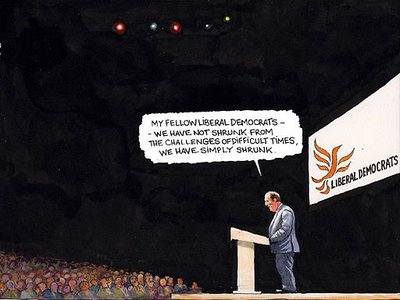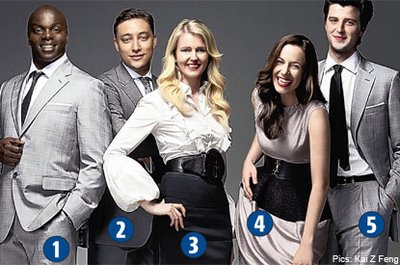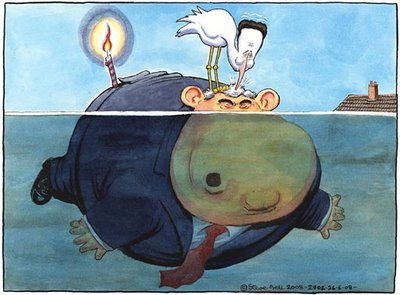Lording it over us all.
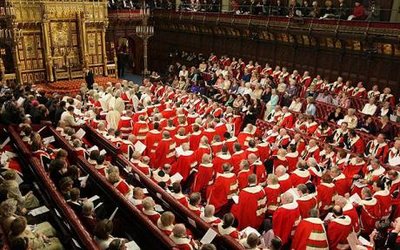 The old cliché regarding political scandals was that Conservatives gave in to temptation over sex, the Profumo affair probably the most notorious, although Cecil Parkinson and David Mellor, not to mention Alan Clark, down the years gave it a run for its money, while Labour MPs sold their souls for money. Perhaps it could be put down to the narrowing of difference between the Tories and Labour that Robin Cook, Ron Davies and David Blunkett all became known for their own sexual dalliances, but few will now forget the loans for peerages affair.
The old cliché regarding political scandals was that Conservatives gave in to temptation over sex, the Profumo affair probably the most notorious, although Cecil Parkinson and David Mellor, not to mention Alan Clark, down the years gave it a run for its money, while Labour MPs sold their souls for money. Perhaps it could be put down to the narrowing of difference between the Tories and Labour that Robin Cook, Ron Davies and David Blunkett all became known for their own sexual dalliances, but few will now forget the loans for peerages affair.With that in mind, it's no real surprise that the Lords themselves have at long last come under scrutiny. They are the last real target for scandal-mongering: we've had the expenses probes, the immigration and foreign criminal affairs, the hysteria over paedophiles in schools and the already mentioned cash for coronets. Like with the expenses fiddles and the nods and winks in exchange for donations or otherwise leading to peerages and honours, this has also been going on for years. For the most part we've been concerned with the gravy train whereby ministers who find themselves out in the cold suddenly discover that the companies which had an interest in their policy area are prepared to pay for their advice: most notably David Blunkett, having began the ID card process, has been advising the companies bidding for the contract, while at the same time writing newspaper articles and letters without bothering to inform his readers of his own interests; Patricia Hewitt, who did such a wonderful job as health secretary, soon joined Boots and Cinven, involved with BUPA, while also finding time to work for BT, having additionally formerly been a trade minister; then there was Alan Milburn, another former health secretary, who became an advisor to... Pepsico. There are dozens of other examples.
Part of the reason why anyone could have seen this eventually coming is that this government has been more dependent on unelected ministers than any other in the past. The Department for Business, Enterprise & Regulatory Reform has only three elected ministers; the rest are all Lords, including the prince of darkness himself. Combined with the removal of hereditaries, who often had their own (inherited) fortunes, and the fact that the Lords has now been stuffed even further with first Blair's and now Brown's cronies, as well as those who have retired from their constituency so that young blood can take over their seat in exchange for a seat in the Lords, it's small wonder that the entrapment practised by the Sunday Times hadn't been tried before.
Less easy to propose is just how the Lords should be reformed to reduce the chances of this happening to a minimum. Of course, that the Lords should be elected is apparent, and that the second chamber is still appointed with all that entails is a continuing black mark on our democracy. The saddest thing is that by in effect abolishing the Lords as it currently exists, the end result will almost certainly mean that the second chamber will become just as party political as the Commons is, and with it will go the resistance to which much of Labour's worst legalisation has quite rightly come under. The solution, in turn to that, would be proportional representation, ensuring that no party could ever have as large a majority as Labour had between 97 and 05, and unable to rail-road through so many bad laws as they managed, but Westminster is resistant at the best of times to such sharp, shocking democratic reform, and to do two things at once would almost certainly be an affront too far.
Even with an elected second chamber, we would still have the problem of whether or not the new Lords would be paid, which they would almost certainly have to be to reduce the conflict of interests which are now becoming ever more apparent. Already there is massive resistance to paying politicians anything extra at all, which even when taking into account the generous expenses, MPs are certainly not overpaid for what is a job with long hours (if additionally long holidays) and a heavy workload for little public gratitude in return; paying the Lords, who do far less even if it's still an essential role, would be asking for trouble.
We could just write this off as an anomaly, a case of grasping peers who have already long got fat off the public trough by whoring themselves out to the private one, as Lord Taylor and Lord Truscott are the epitome of. While undoubtedly it still remains the case that we are one of the least corrupt democracies in the world, at the least there has to a mechanism by which peers can be expelled, just as they can currently be denied from taking on the ermine. When Labour tried to introduce something along these lines so that Archer could be prevented from taking to the red benches after his prison sentence, the Conservatives moved to block it, resulting in its dropping. Perhaps Blair already at that time had an inkling of what else was yet to be uncovered and so was happy to oblige; perhaps Labour was just, as usual, moving between cowardice and ruthlessness.
Labels: conflicts of interest, consultancies, Erminegate, House of Lords, House of Lords reform, Lord Taylor, Lord Truscott, politcs, political scandals

